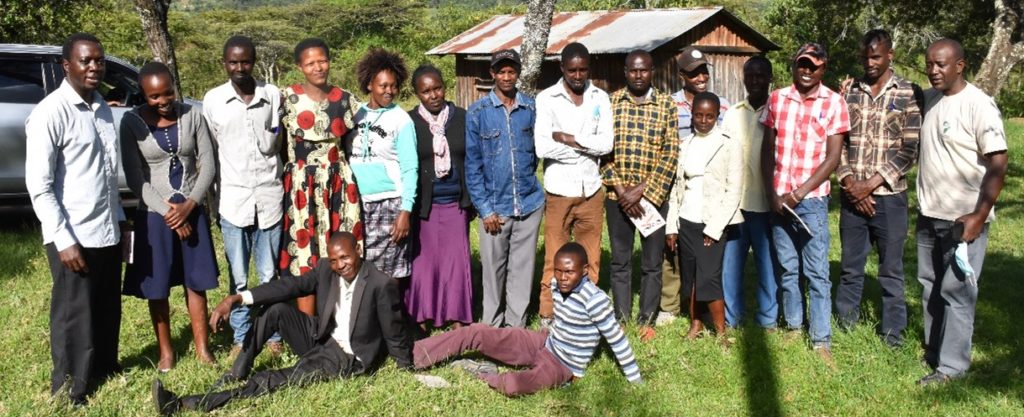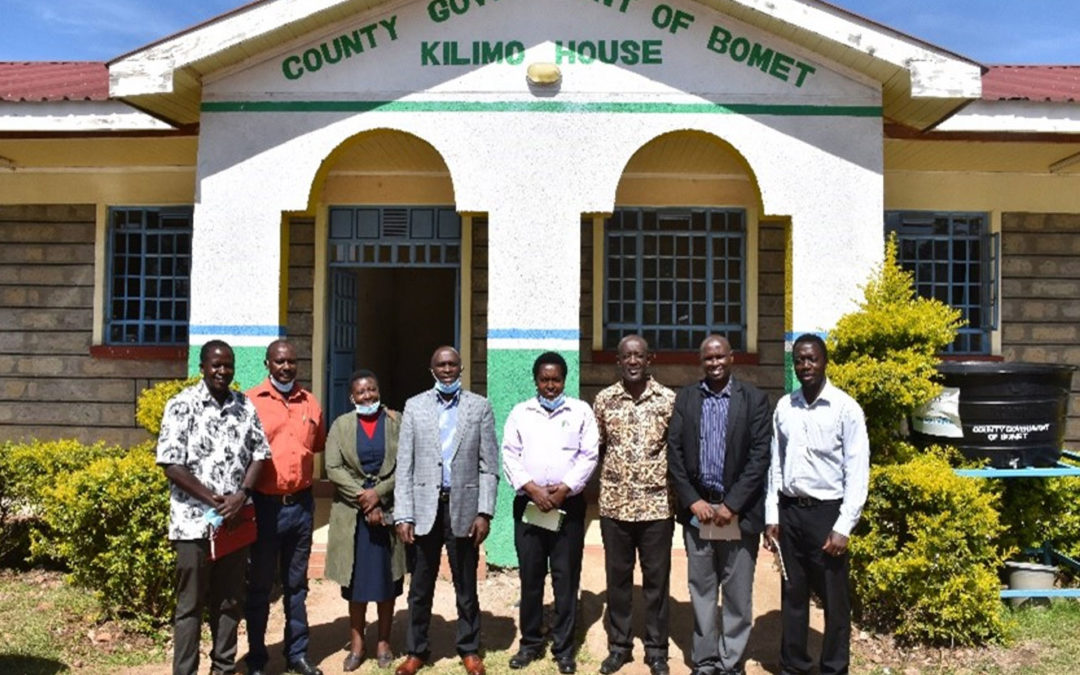By Owen Kimani, Boaz Waswa, Eileen Nchanji, Patricia Onyango, Noel Templer
Agriculture cooperatives play a key role in enhancing productivity and access to markets for smallholder farmers. Most farmers’ cooperatives in Kenya have attempted to establish inputs distribution systems for their members to access quality inputs and secure markets that offer fair and premium prices. However, most of these systems have weaknesses with a lack of clear farm inputs purchase, supply structures and market linkages. This results in low incentives for the members since the cooperative-owned outlets don’t offer competitive products and income opportunities. By understanding the market demand, a cooperative would be better placed to provide its members with improved access to seeds, inputs, fair pricing, and delivery of diverse agricultural products and services.
When farmers work together in cooperatives and groups inclusive, equitable decision-making is fostered. Members of different gender and economic wealth classes learn different crop production and field management skills. Their knowledge of providing and accessing agricultural services, information, market linkages, and entrepreneurship is enhanced. These are the reasons Kaplamboi Rotu Farmers’ Cooperative Society was created.

The County Government of Bomet, together with the Kenya Agricultural and Livestock Research Organization (KALRO) and the Alliance of Bioversity and CIAT through Pan Africa Bean Research Alliance (PABRA), launched a partnership to train farmers from various farmer groups on bean production and marketing.
Bomet county has favorable climate for growing beans, especially the biofortified varieties such as Angaza, Nyota, and Faida, which are high in iron and zinc.
The County Executive Committee Member for Agriculture in Bomet County, Dr. Kipchumba Towett, welcomed the partnership to “train various farmer groups on bean production for commercial purposes, to improve food security and economic livelihood for the farmers”.
The Kaplamboi Rotu Farmers’ Cooperative Society was formed in 2014 to structure bean production and marketing for the smallholder members of the group. The Cooperative is made up of four partner farmer groups; Upendo Welfare Farmers Group, Tulwop Moi Sunrise Farmers Group, Abosi Vision 2030 Farmers Group, and Sugutek Multipurpose Farmers Group. The Cooperative helps farmers access inputs, storage and markets to sell their crops at premium prices. They have a storage store, where the farmers bring their harvest for sale at the end of the season for aggregation and sale. The storage halls act as aggregation points for potential offtakers and keep. The centralized aggregation point saves time instead of a door-to-door collection. Through support from the County Government and other partners, the farmer groups are linked to markets for their produce and new farming techniques. Some of these initiatives by the farmers include; a) using mechanized threshers that help in post-harvest management and ensuring clean grain for the market; b) using hermetic bags that protect the produce from pests and increase the shelf life during storage. These techniques have helped achieve a great milestone in upscaling different value chains.
For Mr. Melilei, the cooperative has made tremendous progress, the farmers have bulked and marketed beans up to 3600 (90 kg) bags, making US$164,606 in total and paid the contracted smallholder bean growers; mobilized smallholder farmers from outside the group and mentored them and have grown up to 4000 Tissue Culture Bananas (TCB). Now matured and estimated an expansion of up to 12000 TCB growing in various farms. Additionally, he said, “farmer groups, we are discussing with offtakers, processors, and the private sector to get adequate volumes to sell and give the farmers a chance to benefit from the competitive consumer prices.”
Farmer groups have actively been entry points to disseminate newly developed technologies to farmers such as the biofortified bean varieties, i.e., Angaza, Nyota, and Faida. The availability of the farmers is made easier by the existence of farmer groups, which in turn act as an avenue to build on their knowledge and skills in agricultural productivity and transformation.
David Karanja, National Coordinator, Grain Legumes and Bean Leader, KALRO, emphasized that cooperatives are great avenues to train farmer groups in bean production to meet the market demand. He also said, “We train the farmers to grow beans for structured markets and grow varieties with good agricultural practices so that the grain quality is premium and acceptable to the offtakers and processors.”
Grace Rono, lady farmer, Gorgor in Bomet County, acknowledges the importance of farmer groups. She bumped onto Nyota beans through a referral from a member of Abosi Vision 2030 Farmers Group. “I used to plant local bean varieties, but when I came across the Nyota beans the high-yielding varieties, I have not looked back. I thank my group for the information,” she shared excitedly.
Improving farmers’ income-earning capability and agricultural productivity is an important strategy to boost agricultural development policy as envisioned in the Vision 2030 and the Sustainable Development Goals (SDGs) on No Poverty, Zero Hunger, Good health and well-being, and Gender Equality.
Bomet County remains a benchmark of functioning farmer groups that are successful. From observations made by County representatives, farmer groups are important for transforming smallholder farming, increasing productivity and incomes, and thereby reducing poverty.
Farmers are increasingly successful in working with government support through cooperatives. However, the capacity to meet all these requests is hindered by limited budgets and human resources. Farmer cooperatives make it easier for the government, private sectors, NGOs, and NPOs to provide services to the farmers, as locating farmers from a group is easier. Farmers are confident in applying new techniques because group members offer support when needed to put knowledge to practice.

